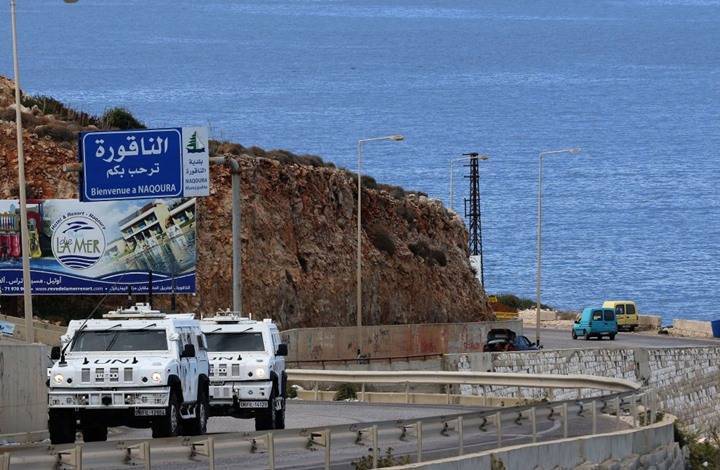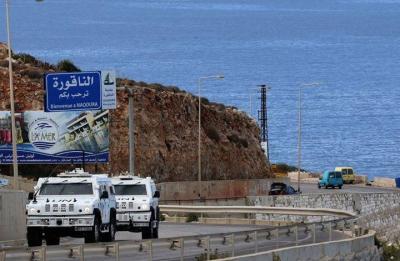Efforts are being made by those working on the border demarcation file to surround the ongoing consultations and negotiations with a wall of secrecy. However, this wall has not yet prevented the leakage of many details and specifics related to the proposals on the table and responses to them. This is especially true given that these negotiations are linked to the escalating tension imposed by "Hezbollah," whether through operating maritime drones or by setting time limits articulated by its Secretary-General, Mr. Hassan Nasrallah, suggesting that further discussions will follow after those deadlines.
Nonetheless, one official involved in this file has expressed a high level of optimism regarding the indirect negotiations led by the American envoy Amos Hochstein between Lebanon and Israel, to the extent that the likelihood of concluding an agreement before the end of September has become a very serious scenario. According to the same official, these estimates are based on several intersecting factors that place the file at a pivotal stage from which Lebanon could benefit if managed wisely.
He outlines a series of considerations that give immense importance to the mentioned timing, the most notable of which are:
- Israel's need to finalize the agreement for commercial reasons after investing over $3 billion in the Karish field. Therefore, there is a sense of urgency to conclude the demarcation so that exploration and supply operations towards Europe, which has become an attractive market for gas, can commence.
- Europe's pressing need for gas from the Middle East to compensate for a portion of Russian gas, leading it to push for a tripartite agreement between the European Union, Israel, and Egypt to supply Israeli gas via Egypt after liquefaction.
- The United States' desire to achieve a "checkmate" in its international chess game with Russia by promoting gas extraction from the Middle East and alleviating pressure on European countries.
- The positive trajectory of indirect negotiations between Lebanon and Israel through the American envoy, especially as the Israelis have set a red line concerning the negotiation process in Naqoura with two technical delegations under UN supervision, indicating further positivity that may lead to an agreement on demarcation.
Based on these considerations, the same official believes that the countries involved in this file, namely Israel, the United States, and the European Union, have a strategic interest in starting gas extraction from the Karish field before the onset of winter and cold in Europe. Thus, they are eager to conclude this file. Meanwhile, Lebanon, despite suffering from an economic and social crisis, has endured for more than two years, suggesting that it can wait a few more months, indicating that the other party also has a strong desire for this agreement.
Moreover, it can be stated that Israel is anxious about potentially losing investments incurred in the Karish field and other fields due to threats from "Hezbollah," while Lebanon has yet to invest a single penny in its oil fields, meaning that Lebanon is still in a strong negotiating position and should not be portrayed as weak.
He notes that the negotiation gap between Lebanon and Israel is narrowing over time, shifting towards enhancing Lebanon's position and meeting its demands. There is optimism about the possibility of achieving an agreement in the coming weeks, especially as significant progress has occurred in the shuttle rounds conducted by Hochstein. He concludes by stating that ultimately, every negotiation comes with its compromises.
In the margins of the meetings that the American envoy held with Lebanese officials, the following observations can be recorded:
- The American diplomat deliberately praised the statement from the Foreign Ministry, which commented on "Hezbollah's" drones, considering that "Lebanon believes that any action outside the state's responsibility and the diplomatic context in which the negotiations are conducted is unacceptable and exposes it to unnecessary risks."
- He informed those he met that the Israelis are fearful of making any concessions under pressure to avoid setting precedents that could lead to similar steps.
- He expressed his annoyance at the positions of "the opportunists" demanding recognition of the 29th line, among them members of the "change" bloc, and did not hesitate to name some of them.
- He expressed his satisfaction with the unified Lebanese position through the meeting that brought together the three presidents in Baabda. Even the invitation from House Speaker Nabih Berri to revive the framework agreement found its way to being addressed through the proposal for signing the demarcation agreement in Naqoura.
- He expressed surprise at Lebanon's timing of protesting against exploration activities in Karish, given that exploration activities date back to 2014, yet Lebanon and "Hezbollah," in particular, did not register their objections until recently, especially since the exploration is happening in the southern part of the 29th line.




